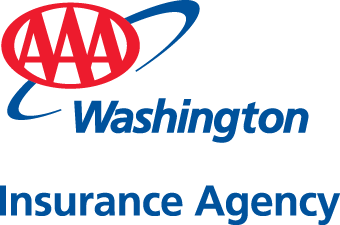Don’t Be Tempted to Compromise on Coverage to Save
It’s reasonable to want to save money on your car insurance, but realize that not all car insurance policies are the same. When you pay less for your car insurance, you get less coverage and more exclusions, which can prove expensive when you have to file a claim.
So before you buy a car insurance policy or switch to one that appears to be cheaper than what you have, ask your insurance agent these six questions about your coverage.
1. How Much Coverage Do I Have?
One reason some insurance companies can offer lower premiums is that they limit the scope of coverage to the bare minimum.
In Washington state, the mandatory minimum coverage for auto insurance is $25,000 per person (or $50,000 total) for injury or death and $10,000 for property damage.
Although these minimum coverages meet the state requirements, in many cases, they do not cover the costs of an accident — even a low-impact accident. Anything above and beyond the limit of your insurance policy is your responsibility.
With that in mind, avoid “broad form” car insurance, which is limited to providing minimal, mandatory coverages that leave you exposed to significant risks.
When you work with a knowledgeable insurance agent, you can find what coverage is adequate for your needs. And you can ask yourself if you feel comfortable being on the hook if the cost goes beyond those coverages.
2. What’s My Deductible?
Another strategy to slash rates is by increasing your deductible — that is how much you have to pay before the insurance coverage kicks in.
A higher deductible may be fine if you have a cushion of disposable income or savings, but according to a recent Federal Reserve report 40 percent of Americans couldn’t come up with $400 in an emergency. If the deductible increases from $500 to $1,500, consider how you could cover the extra cost.
3. Are There Limitations on Drivers?
Cheap insurance also may not include permissive use, which is when you allow friends or others who are not on your insurance policy to drive your car. In some cases, the coverage may decrease to the state minimums or be excluded when your friend is behind the wheel. So be sure you check the limitations on permissive users.
What you may not know about permissive users is that if they get into an accident in your car after you’ve given them permission, the accident will stay with your insurance history — not the driver.
Another tactic that is used to reduce rates is to exclude drivers with a troubled past from the policy. Although this saves premium dollars, it could cost you much more if an excluded driver gets into an accident in your car, because this person is not covered.
4. Does My Coverage Include Uninsured/Underinsured Drivers?
One out of eight people in the United States is driving uninsured, according to the nonprofit Insurance Research Council. That’s 13 percent of all drivers. It’s even worse in Washington, where 17 percent of drivers are uninsured.
Washington state requires that insurers offer uninsured and underinsured motorist coverage, which is the only coverage that pays if the other driver doesn’t have any or enough insurance.
Before opting for the minimum of this coverage, realize how much liability you could expose yourself to if you get into an accident with one of these uninsured drivers.
5. Do I have Gap Insurance?
If you are financing or leasing a new vehicle, you may want to consider gap insurance, which is the insurance coverage that pays the difference between what you owe on your car and its actual cash value in cases of total loss.
For example, you may owe $30,000 on your car, but if it is totaled in a collision, it’s actually worth only $25,000 — that is because new cars depreciate faster than their financing is paid. In this example, gap insurance would pick up the $5,000 difference.
6. Do I Have Umbrella Insurance?
People who have significant assets, like a home, may consider choosing umbrella insurance, or coverage that pays beyond the limits of other insurance. Umbrella insurance, also known as excess liability insurance, kicks in after your basic auto insurance policy is exhausted. It also acts as a fail-safe if you lose a big-ticket lawsuit after a collision. Umbrella insurance also may extend to accidents that occur at your home or business and even a rental property. It can even be used to defend you from libel and slander cases.
As with all insurance, umbrella coverage has its limits, so it’s best to understand your total assets and balance out how much additional coverage is warranted with how much you can afford.
–Written by Jim Davis

